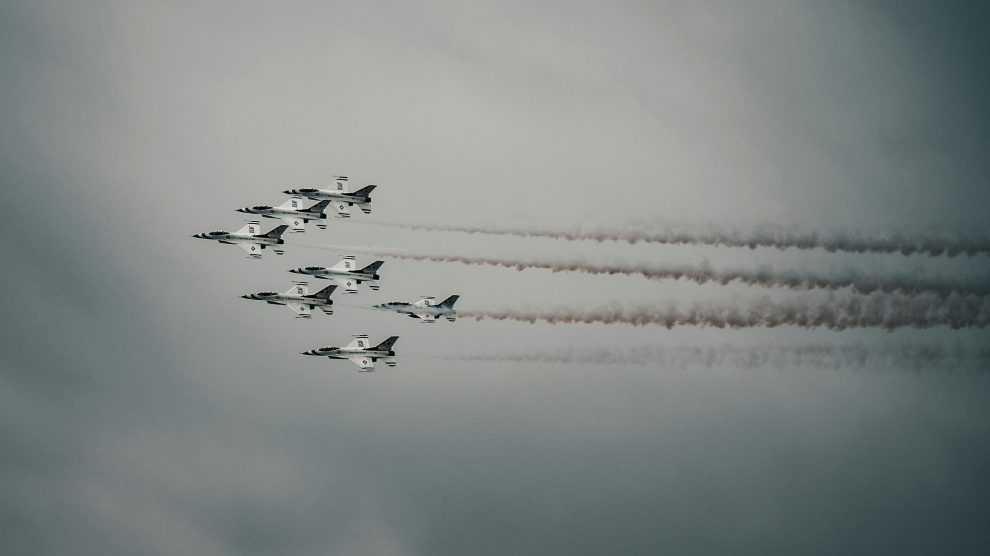The 2024 K.E.Y Platform offers a solution to balance power and ambitions in the Pacific.
China has just ended two days of war games around Taiwan in which it simulated attacks with bombers and practised boarding ships.
The ‘Joint Sword – 2024′” exercises were launched three days after Lai Ching-te, the man Beijing calls a ‘separatist’ became Taiwan’s president and made an inaugural speech in which he said the two sides of the Taiwan Strait were “not subordinate to each other”.
A month ago, I was in Seoul, where I hosted the 12th edition of the K.E.Y. Platform conference, organised by Money Today, South Korea’s most prominent business media outlet. As it does every year, this year the Platform analysed the current global geopolitical and economic situation and proposed to establish a strong alliance system centred around the Pacific, beyond the trilateral cooperation system of Korea, the US, and Japan, called ‘Pacific Pfoedus’.
- The last word: Lessons from the wider world
- Much of emerging Europe is falling behind on its commitment to equality
- How Armenia and Azerbaijan finally made peace
Just as the North Atlantic Treaty Organisation (NATO) was born out of the Cold War to strengthen security between North America and Europe, a robust alliance system like the North Pacific Treaty Organisation (NPTO), as it was branded by the K.E.Y. Platform experts, could be formed to respond to the current security challenges such as the military exercises, which—as described Taiwan’s presidential office—constituted “a blatant provocation to the international order”,
Within the North Pacific Treaty Organisation, Korea, the US, and Japan can further solidify the current trilateral alliance system, but the main idea is to integrate bilateral alliances centered around the US into a multilateral system.
Reducing the burden on the US
That multilateral system could reduce the burden on the US and help regional security. If countries with resources and excellent manpower, including Korea, Japan, the Philippines, and Vietnam, participated, the Alliance would become strong and could lead to achievements in other sectors, such as energy. Considering recent cases where Russia weaponised energy and resources, energy is also a field that can upgrade alliances in terms of security as well as the economy.
Don Q Kim, the editor-in-chief of PADO Magazine and a foreign policy expert, argued that Ukraine has been able to continue fighting despite being objectively weaker than Russia thanks to NATO’s support, especially in weapons.
“If we secure a firm position in the defence industry within the North Pacific Treaty Organisation, we can elevate our status while pursuing economic benefits. This competitiveness will also provide a more advantageous foothold for expanding into global markets, including Europe and South America,” he said.
What would a potential new Alliance mean for Europe and emerging Europe specifically?
Well, NATO remains one of the strongest alliance systems. The importance of NATO has been highlighted further by the Russia’s full-scale invasion of Ukraine, but a new Alliance could only strengthen NATO’s role going forward as it is likely that both Alliances would work closely together.
It could mean additional business and security opportunities for the emerging Europe region and if led by South Korea, for which our part of Europe is becoming a strategic partner, the opportunities could be even bigger. It could also form a grander coalition of the free and democratic countries in the world, which the region is part of.
NPTO would definitely send a message to China, which once viewed emerging Europe as a promising region for expanded and pragmatic cooperation and was even touted as China’s economic ‘gateway to Europe’.
It would also provide more guarantees to Taiwan, a strategic partner of emerging Europe. Before Lai’s presidency even began, Hsiao Bi-khim, his vice-president elect, travelled to four European countries (three of them in emerging Europe: Czechia, Lithuania, and Poland). These developments are a sign of the times: they mark Taipei’s commitment to strengthening its relations with Europeans, particularly those from emerging Europe, amid growing international instability.
Biden or Trump?
Now, the world is waiting for November 5—a rematch between President Biden and former President Trump.
It is clear that the two candidates differ not only in their party affiliations, which represent different values, but also in their approaches to various issues, including NATO. Just a couple of months ago, Trump, who is willing to disregard the value of alliances if they deviate slightly from US interests, said the US will “100 per cent” remain in NATO under his leadership so long as European countries “play fair.”
Biden seeks to resolve many current issues through alliances and diplomatic systems, so the chances that a new alliance could be formed during his second term are far higher.
The duel between the two will shape the world’s future.
For emerging Europe, strengthening its allies in Asia is not only essential but also in its best interests. The region’s support for NPTO should be unanimous.
Photo by Colin Lloyd on Unsplash.
Unlike many news and information platforms, Emerging Europe is free to read, and always will be. There is no paywall here. We are independent, not affiliated with nor representing any political party or business organisation. We want the very best for emerging Europe, nothing more, nothing less. Your support will help us continue to spread the word about this amazing region.
You can contribute here. Thank you.


